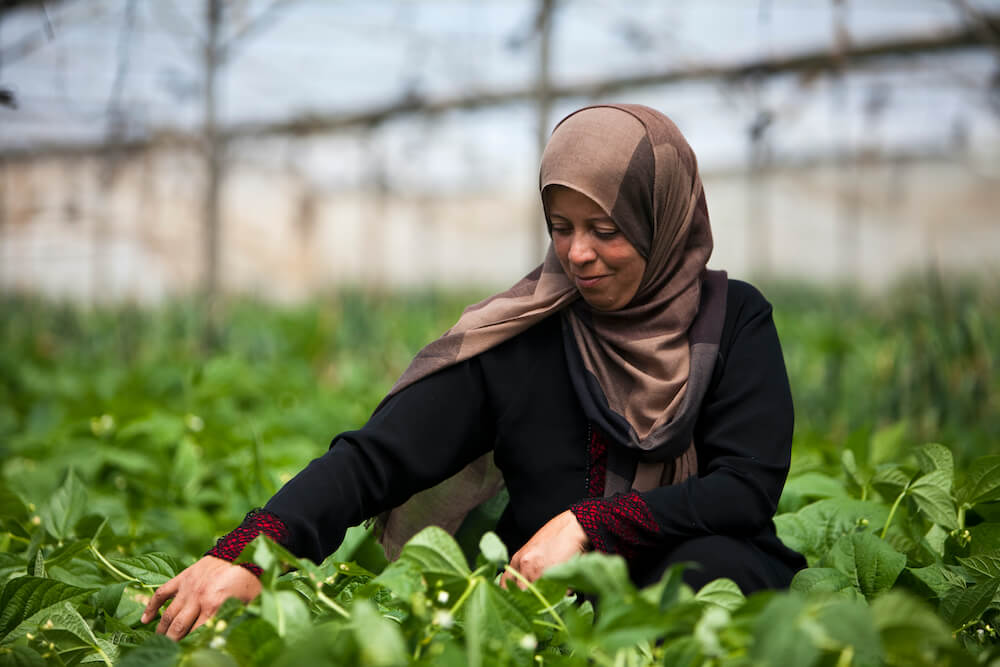Greetings, Agents of Impact!
Signals: Ahead of the Curve
Refugee investments provide blueprints for Biden’s reset on immigration. As the Trump administration was building walls and new restrictions, impact investors and innovative humanitarians were creating a marketplace of financing solutions for migrants and refugees (see, “A growing community of investors steers capital to solutions that benefit refugees”). The network of investors, funds and companies driving affordable housing, healthcare, mobile banking and other solutions now provides blueprints and proof-points for the incoming administration of President-elect Joe Biden, who has signaled a Day-One reset on immigration. “If there was ever a time for this kind of work to accelerate, it would be now,” says John Kluge. “We’re starting to actually see a track record in the field.” Kluge founded Refugee Investment Network to connect capital with solutions that benefit refugees. The network’s latest report, “Building Inclusive Economies: Applications of Refugee Lens Investing,” catalogs successful strategies and makes the case for more philanthropic and “catalytic capital” to build the market.
- Refugee solutions. Biden’s $4 billion Central America strategy aims to mobilize private capital for infrastructure investment, microfinance and inclusive banking with a focus on women. It should look to funds like SEAF’s Global Displaced Persons Fund, a multi-region equity fund backing entrepreneurs delivering jobs, products and services to the forcibly displaced and their host communities; models like Ejido Verde, a pine resin company building incomes and wealth in indigenous communities in Michoacán, Mexico; and companies like Bogota-based fintech Valiu, which provides same-day money transfers for unbanked migrants in Latin America.
- Catalytic capital. Building the market for refugee investments is “going to require very intentional efforts on the part of investors and additional intermediaries,” says Kluge. “I don’t think this market builds itself.” Grant capital from a handful of family offices, private foundations and the USA for UNHCR, for example, helped Kiva extend no-interest loans to microfinance institutions to pilot refugee lending programs. The pilots dispelled risk concerns; lenders learned refugees repay at the same rate as non-refugees. Kiva has lent $17 million to 20,000 refugees.
- Cohesive strategy. Kluge sees Biden’s comprehensive approach to climate as an example of the holistic approach needed to tackle migration challenges. Refugee investments target different stages of migration and every stage of company growth. Making deals work requires capital across the returns continuum, from public, impact-first and concessional financing to traditional and market-rate investments. “If you can do it in climate, you can do it with migration,” Kluge says. “It’s about doing all of these things together and leveraging that work in a cohesive strategy.”
- Share this post.
Dealflow: Follow the Money
Third Derivative aims to accelerate climate tech. In calculus, the third derivative is the rate of change of the rate of change, or to put it another way, the acceleration of acceleration. Third Derivative, a partnership of the Rocky Mountain Institute and New Energy Nexus, aims to commercialize and scale climate solutions more quickly by providing startups tackling climate challenges with access to funding, corporate partners and policymakers. “We need them all if we’re going to solve climate,“ Third Derivative’s Bryan Guido Hassin told ImpactAlpha. The nine corporate partners include AT&T, Berkshire Hathaway Energy, BP Ventures, Engie and Microsoft. Venture capital partners include Chrysalix Ventures, Emerald Technology Ventures, Factor[e] Ventures, Imperative Ventures, Social Alpha and Skyview Ventures. Many corporations have little idea of how they’re going to meet the bold climate ambitions they have publicly set, Hassin says. At the same time, promising ideas can die on the vine while startups navigate corporate bureaucracy.
- Cohort 417. The first cohort of 47 startups, named for the record carbon dioxide level of 417 parts-per-million recorded in May, was selected from more than 600 applicants from six continents. Austin-based TexPower, for example, is developing cobalt-free lithium batteries. Italian startup Energy Dome is using CO2 to store renewable energy. LoadExx, a last-mile logistics platform, is deploying electric vehicles in India. Third Derivative corporate partners pay membership fees; each investor makes seed investments in at least five startups, and possibly more in follow-on funding.
- Corporate collaboration. Third Derivative is part of a growing set of intermediaries that connect corporations to solutions for the clean energy transition (see “Corporate collaboration: Microsoft backs Energy Impact Partners to speed the low-carbon transition”). “Rarely do you commercialize without a corporate entity,” as a development partner, pilot investor or acquirer, says Hassin, a serial cleantech entrepreneur. “Our model is to facilitate those interactions.”
- More.
Aphea.Bio secures €14 million to develop eco-crop treatments. For decades, modern agriculture has relied extensively on chemical-based, often environmentally-destructive crop treatments. Belgium-based Aphea.Bio is on a growing roster of agtech startups developing safer bio-based pesticide and herbicide alternatives. Its Series B financing will help bring to market products enabling farmers to reduce fertilizer use and control fungal diseases in maize and wheat.
- Impact agtech. The equity round was led by Brussels-based Astanor Ventures, which closed a $325 million impact fund to invest in U.S. and Europe-based startups addressing climate issues in agriculture and food production (see, “Astanor Ventures raises $325 million for sustainable food and ag-tech”).
- More.
Ethical Housing raises £7.5 million for affordable housing in the U.K. The Ethical Housing Company snagged commitments from Teesside Pension Fund and Big Society Capital to acquire affordable housing in Teesside, U.K., 250 miles north of London. Sixty percent of renters in the area depend on social benefits. Ethical, which launched in 2018 with £5 million ($6.7 million) from impact investor Bridges Fund Management, owns 60 affordable housing properties and is targeting 100 acquisitions per year. Read more.
Domini’s International Opportunities Fund goes global. Domini built the fund to replicate the U.S. equity strategy of its Domini Impact Equity Fund, which ranks in the top 1% of Morningstar’s U.S. fund large-blend category (see, “Q&A: How ESG pioneer Amy Domini is finding impact alpha in sustainable solutions”). The new public equities fund from the long-time environmental, social and governance, or ESG, investor will allocate the bulk of capital to ESG out-performers; up to 20% of the fund will go to companies with solutions to the low-carbon transition, access to clean water, sustainable food systems, and financial inclusion.
Agents of Impact: Follow the Talent
Surdna Foundation’s Don Chen becomes co-chair, alongside Ford Foundation’s Darren Walker, of the Presidents’ Council on Impact Investing, a philanthropic leadership group… Agnes Dasewicz is named co-CEO of global impact fund SEAF, joining current CEO Bert van der Vaart. Dasewicz helped launch Kauffman Foundation’s Capital Access Lab and served as director of the U.S. Agency for International Development… Impact Engine is looking for a senior associate in Chicago…
The Sustainability Accounting Standards Board and the International Integrated Reporting Council are merging to create The Value Reporting Foundation… 1863 Ventures and AARP Innovation Labs are holding a town hall for ecosystem builders on supporting Black entrepreneurs, Thursday, Dec. 10.
Thank you for reading.
– Dec. 1, 2020











